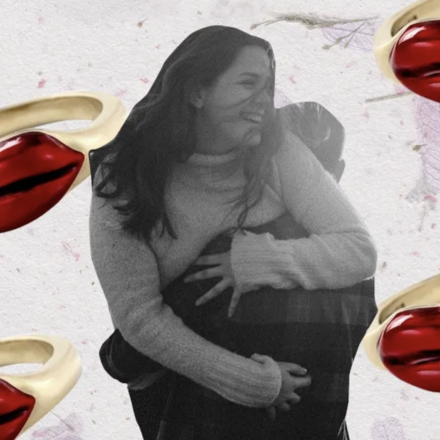What Are Karmic Relationships and How Can They Change Your Life Forever?
The term "karmic relationships" is not an official term in psychotherapy or religion, but it has deep spiritual roots.
"Intense relationships filled with drama are often mistakenly perceived as love, but this is not the case. Most likely, these are karmic relationships, and it’s important to understand that lingering in them for too long is not advisable," says spiritual coach Kristina Lopez.
So, what are karmic relationships really, and do they always have a negative impact? In this article, we explore their main aspects from the perspective of psychologists and spiritual experts.
The Law of Karma
The term "karmic relationships" is not an official term in psychotherapy or religion, but it has deep spiritual roots. As one might guess, this term comes from the concept of karma in Eastern religions such as Buddhism and Hinduism.
Karma is the belief that our actions have consequences. In some Eastern religions, it is believed that these consequences affect us not only in this life but also in the next.
Many believe that karmic relationships are the result of unfinished business from past lives — two souls meet again to complete what remains unresolved.
Others think that karmic relationships are a consequence of our previous actions. Regardless, "it's the law of action and reaction," explains Priscilla Lima de Charbonnière, astrologer, author, and coach. Every action triggers a corresponding reaction, whether positive or negative.
What Are Karmic Relationships?
There is no precise definition of the term "karmic relationships" — it has only become popular in recent decades and does not have a single source of origin. Not everyone agrees that karmic relationships are necessarily "bad." Many experts believe that all our relationships are karmic to some extent.
"No one enters our lives by accident," says Lima de Charbonnière. "We attract people with compatible energetic vibrations. Karmic relationships are the result of the law of attraction, and all relationships have karmic elements at different levels."
Lessons We Learn
Most people who use the term "karmic relationships" agree on one thing: these relationships exist for our growth.
"The person you attracted into your life came to help you learn a specific lesson," says tarot reader Angie Baniki. "You found each other because this lesson needs to be worked through."
If this process seems too abstract, it’s worth remembering: psychologists assert that most difficulties in relationships arise from unhealed wounds from the past. We often subconsciously attract partners who activate these wounds.
"The idea of 'unfinished business' from past lives has a psychological basis, as the past lives in our present," explains psychotherapist Stephen Floyd, who studied Buddhism and often applies its principles in working with couples. "Early attachment experiences form the foundation for our future relationships."
Floyd adds that our childhood is the first "past life" we must understand, and challenges in adult relationships often serve as an important impetus for this understanding. "We enter relationships deeply aware that our partner holds the key to our growth," he says.
Karmic or Toxic?
Growth is never easy, and it can be difficult to distinguish normal relationship challenges from unhealthy dynamics. "Karmic relationships can closely resemble toxic or dysfunctional ones," notes Dr. Candice Cooper-Lovett, a licensed marriage and family therapist. "They are similar in that they feature very high highs and very low lows."
Other alarming signs often overlap as well. "Karmic connections feel simultaneously magnetic and unstable; people often break up and then get back together," explains Attina Manvelyan, an associate professor of counseling psychology at Santa Clara University. "Another sign is the dependence on cycles of passion and drama that repeat continuously. These relationships are like roller coasters, where repetitive patterns and emotional cycles complicate breakups."
To make the situation even more confusing, a person may struggle to exit toxic relationships because they believe these relationships are destined or "made in heaven." "Karmic relationships are hard to end due to the strong natural chemistry and the sense that past lives continue to bind you together," explains Cooper-Lovett.
Changing Behavioral Patterns
Most experts recommend paying attention to how you feel in the relationship, rather than merely trying to categorize it. Ask yourself some important questions: Are you thriving in this relationship, or are you just barely surviving? Are you learning something new, or do you feel drained? Are you and your partner open to change?
"The real distinction lies in the fact that karmic relationships typically serve as a means for growth and learning, even if this process is painful," says psychotherapist Ken Fircheller. "Toxic relationships are characterized by harmful behaviors such as manipulation, control, or violence, without the intention or ability to make positive changes. The purpose of karmic relationships is for both partners to learn important lessons — often about self-respect, boundaries, or unresolved emotional traumas."
In other words, karmic relationships become dysfunctional only when you and your partner fail to acknowledge your unhealthy behavioral patterns and avoid taking necessary steps to address them.
"Conflicts in relationships are an opportunity for growth in areas where we have yet to develop," explains Floyd. "But this growth is only possible when both partners recognize their role in the relationship. Otherwise, we remain in a constant state of tension. Healthy relationships are not those without conflict, but those where conflicts are resolved with care. They are based on safety, mutual respect, and an understanding that our partners act as they see fit for themselves, not with harmful intentions."
To Stay or to Go?
These factors are essential for any relationship to thrive, regardless of whether you consider them karmic or not. "Navigating relationships requires a lot of self-awareness, reflection, and personal and spiritual growth," notes licensed family therapist Kim Burris, founder of the Center for Holistic Counseling.
However, if you feel that you are the only one working on the relationship, it may be a sign that it has run its course. "One of the hardest realizations in a relationship is understanding that the person who helped us uncover our deep wounds is not always the one who will help us heal them," says Burris.
This is a difficult realization, but here’s another thought with which most experts agree: the decision to end relationships that no longer work does not mean they were unsuccessful or "bad." The ability to let go may be the primary goal.
"Ending karmic relationships can be a transformational process or even a lesson in itself," notes licensed mental health counselor Natalie Rozado. "It can also bring healing and personal growth."
Learning to transform our unhealthy behavioral patterns is crucial. To do this, we must take responsibility for our actions.
"The best way to heal is to take responsibility for creating and co-creating our reality," explains Lima de Charbonnière. "By taking responsibility, we gain the power to transform our relationship patterns. Simply ending a relationship without transforming ourselves will only lead us to attract another situation or relationship with the same pattern."
This defines what it means to be stuck in a karmic cycle. To avoid this — in other words, to "cleanse your karma," heal your wounds, and change behavioral patterns — we must learn to give ourselves what Cooper-Lovett calls "unconditional love and respect, above all."
Burris summarizes: "Sometimes the bravest thing we can do for ourselves is to say 'enough' and leave relationships that no longer serve us. It may seem like an impossible task, but it also brings the gift of deepening the most important relationship in this life: the relationship with ourselves."



















